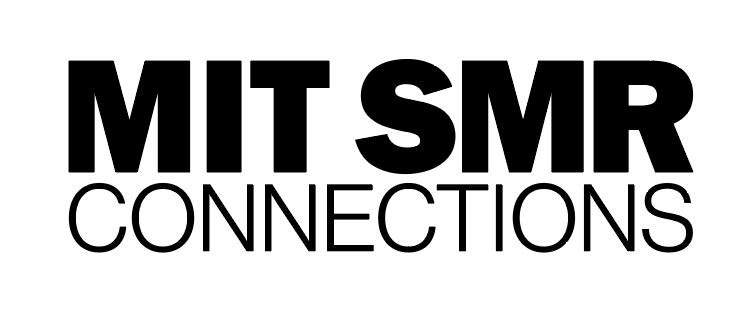The COVID-19 virus and its many variants are likely far from done with us. As such, event producers and companies are contending with how to format their corporate events. Do they remain virtual, as was the case during the shutdowns? Do they go back to in-person events? Or is there way that they can take advantage of benefits of virtual and in-person events at the same time? In many cases, businesses are focusing on producing hybrid events. I think we’ll look at 2020 as the year business leaders learned that we can absolutely collaborate remotely, be productive, and serve our clients by applying the right technology solutions to meet virtual and in-person situations.
During the shutdowns, organizations improved virtual events that were already happening, by using technologies that allowed them to continue to connect meaningfully with their clients, partners, and prospects. Improvements in virtual event practices and technologies have, in many instances, become people’s preferred way to attend events over traditional in-person events. Hybrid events, with both in-person and virtual components, is exactly the kind of experience that event producers and attendees are looking for.
That’s what inspired a recent research study commissioned by Cisco Systems to explore the value proposition of virtual events. In that pulse survey, we surveyed over 300 business professionals who typically attended at least 10 in-person events a year pre-pandemic. Fred McClimans, my colleague here at Futurum, explored the findings of that report in an earlier article, identifying three main value propositions of the hybrid event format: Increased engagement, more diversity and inclusivity, and better flexibility and support. These three benefits of hybrid events bring significant value to host and attendees, as long as the right technology is used to support the event.
Increasing Attendee Engagement with Communication and Collaboration
Our research found that 70 percent of people say when attending an event, it’s very important that they are able to contribute to conversations, offer feedback to other attendees, and validate their own ideas and opinions with their peers. The reality, however, is that when attending in-person events, many of those needs are unmet. That’s where the beauty of a hybrid event comes in. Hosting a hybrid event allows for deeper engagement among speakers and attendees. The right technology easily connects in-person and virtual speakers and attendees. For example, successful hybrid events feature live Q&A sessions where all attendees can ask speakers questions, such as through video or text chat. Moderators can choose questions for speakers to answer in real time, creating an experience that’s similar to an in-person interaction. This allows for a flow of information between speakers and virtual attendees, letting brands reap the rewards of increased audience engagement, while attendees feel heard during the event. And clearly this is a popular option — 95 percent of our survey respondents find Live Q&As helpful for engagement.
And it’s not just virtual attendees who benefit. For instance, people who attend the event can interact with others in real-time in-person as well as virtually using the hybrid event platform before, during or after the event by using chat or live Q&A features. Over 60 percent of our survey respondents shared that it is very important they have the opportunity to network with other attendees and engage with speakers and presenters, not just during an event but before and after the event. What’s more, 57 percent say they’d find significant benefit through increased online interaction with speakers and attendees. As someone who has spent years traveling the globe and speaking at events, I can see great benefit in this as well. Presenters have one thing in common: they love sharing their thoughts and ideas, with audiences and one-to-one. So, building in functionality by way of a hybrid event so that speakers and audience members could more closely connect and interact before and after the event adds significant value — and opportunities — for everyone.
In short, hybrid events make better engagement easy — for hosts, speakers, and audience members. Quality hybrid event platforms allow for plenty of interaction via multiple virtual tools that allow attendees to ask questions, make comments, share and like posts, and more. The result is attendees and speakers being more connected to learn from one other, during and after the event. This increased engagement, fostered by the hybrid event platform, drives greater opportunities for the hosting organization.
Driving Diversity and Inclusivity Using Hybrid Event Technology
While a pandemic prevented us from traveling and gathering in-person, when businesses embraced virtual events, they realized the potential to engage with a wider, more diverse audience. Barriers to in-person attendance, such as budget, travel, physical access or absences from the office, are removed. Attendance at events is democratized by the virtual, whether live or on demand.
Hybrid events that facilitate collaboration, personalization, and self-service access to event activities level the engagement playing field, especially for virtual attendees. Providing greater participation, deeper engagement, and access to a wider variety of perspectives and opinions, creates value for everyone in attendance. In fact, 64 percent of our respondents indicated the impact of collaborative capabilities when attending events would be significant.
Hybrid Events Need to Offer Flexibility and Support
We knew going into the survey that not everyone is on the same page when it comes to event preferences. Some are all in when it comes to in-person events and others prefer fully virtual events. 46 percent of people shared that they dislike in-person events because they don’t like the feeling of getting lost in a crowd. Meanwhile when it comes to virtual events, the leading frustrations involved technology. 40 percent said applications that crash or don’t work are a significant frustration with virtual events, second to poor video/audio connections at 59 percent. So, virtual attendees might not be lost in the crowd but more concerningly, not able to attend at all.
With that said, hybrid events are:
- Flexible. Offering in-person, virtual, mixed-mode (a bit in-person a bit virtual, or in-person but use virtual features like collaboration, on demand viewing, pre- post- event engagement) gives attendees the ability to choose what works best for them.
- Supportive. Enabling personalized experiences, facilitated interaction with others, full-spectrum experience from registration to post event polling gives everyone a chance to participate regardless of how they choose to attend.
- Add complexity. Organizations have to be prepared to handle the double barrel pitfalls of both modalities (getting lost in the crowd AND technology blow ups).
Platforms designed for hybrid events can provide the balance across the modalities, accommodating a seamless, end to end experience for all participants, speakers, and planners.
Hybrid Events Are the Best of Both Worlds
When developing hybrid event strategies there is no one size fits all approach. Fully in-person, or fully virtual meet the needs of some attendees and speakers, but not all. Hybrid events, provide the best of both worlds, allowing more opportunity for attendance by all interested parties. This flexibility of choice leads to deeper engagement among individuals, more inclusion with a diversified cohort, and personalized experiences that meet everyone’s attendance and participation needs.
Hybrid events should be on your radar screen now. Survey results show that hybrid events check all the right boxes for the greatest number of people. Hybrid events come with complexity, making it imperative to use the right technology platform. Look for platforms that provide start to end capabilities in one seamless environment. The right hybrid event environment should:
- Provide a single platform to support pre-, during and post-event activities, including registering, moderated Q&A or polling, live and asynchronous networking and discussion, and on-demand content.
- Enable attendees to participate in the event and consume content how they want and at their own pace.
- Connect attendees regardless of location and fosters networking opportunities.
- Facilitate conversations before, during and after the event, including live Q&A with speakers.
- Enable real-time content to be supported by additional on-demand content and research, allowing attendees easy access to access to deeper research.
Whether virtual or in-person, attendees can enjoy the same benefits — the ultimate flexibility.
Bottom Line
Organizations can reap the maximum benefit from a hybrid event, tapping into the best that virtual and physical events have to offer. Attendees of hybrid events can experience increased engagement with a more diverse audience, whenever and wherever they would like to attend.
While some organizations might shift back fully to in-person events and some might stay 100 percent virtual, we at Futurum believe that moving forward the best events will combine the two, leveraging the power of both.
Learn how Webex by Cisco can help your organization excel in the hybrid-work era.





